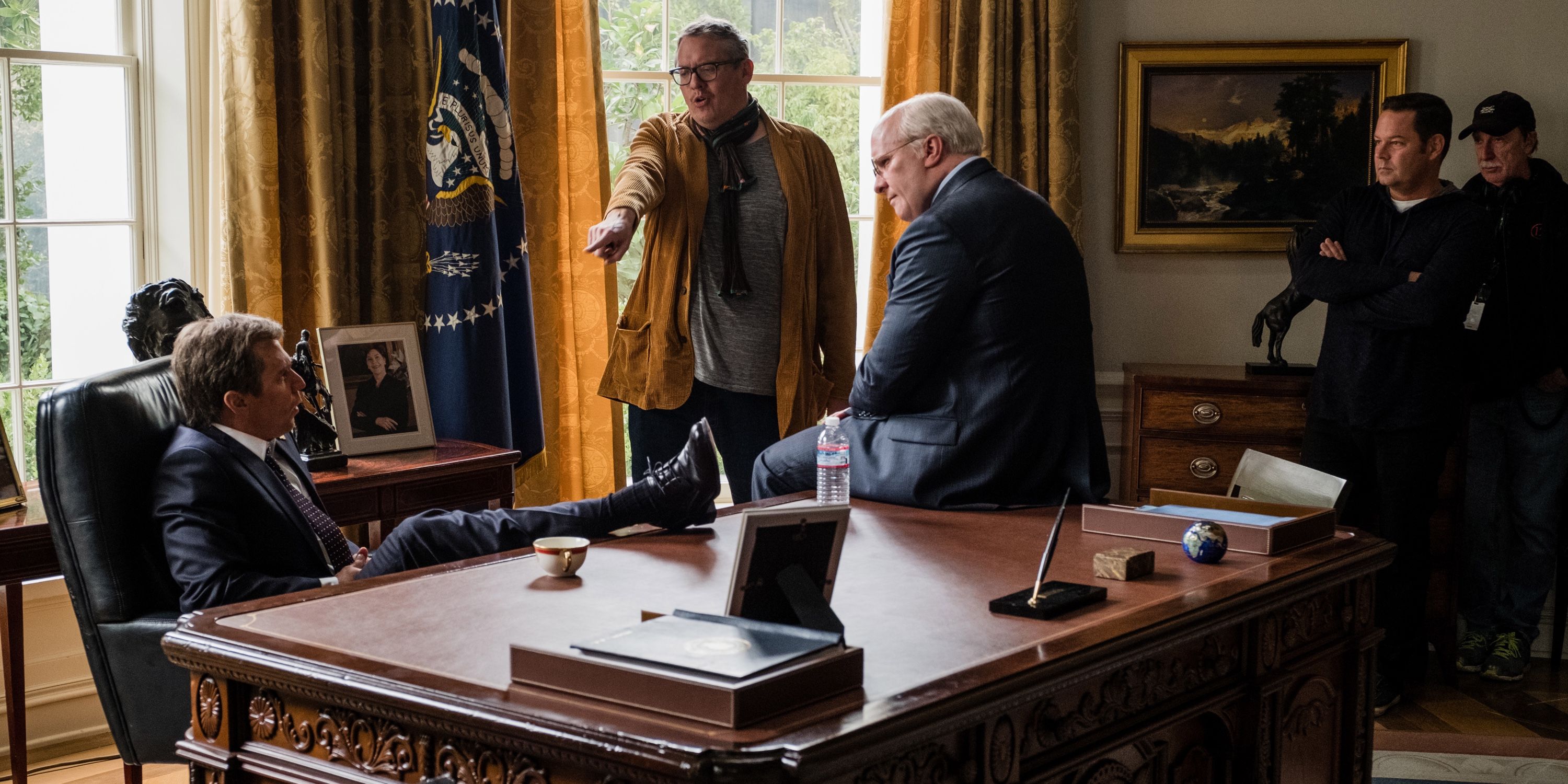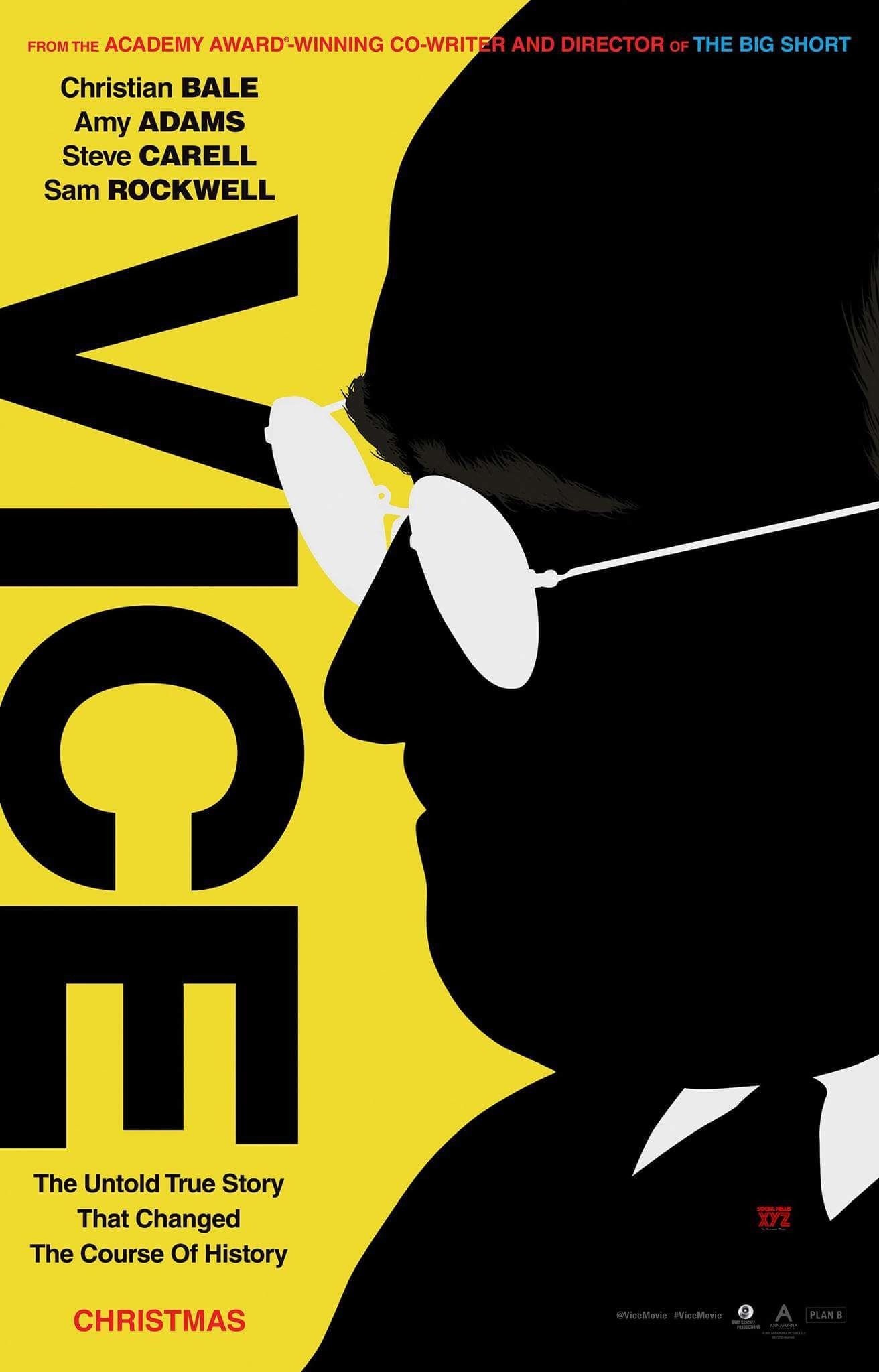Adam McKay began his career in comedy, serving as the head writer on Saturday Night Live for two seasons, and then directing comedies such as Anchorman, Talladega Nights, and Step Brothers. He took a more dramatic turn with The Big Short, a film about the 2007-2008 financial crisis. It garnered him multiple award nominations including the Academy Award for Best Director. McKay’s most recent film is Vice, which chronicles Vice President Dick Cheney’s time in the White House.
Screen Rant: First, I was going to say congratulations on the Golden Globe nominations.
Adam McKay: Thank you very much.
Screen Rant: Well deserved. I saw the film on Friday. So, how did you come to the idea of writing movie about Dick Cheney?
Adam McKay: I really enjoyed my experience with The Big Short. I really enjoyed the premise that there are things that are changing our world that we're not always seeing or fully acknowledging. Sometimes we kind of see them. And I had the flu and I was at home just bumming around for two weeks and had some Dick Cheney book on my shelf that I started reading. And I was like, “Holy moly. I knew the guy had outsized influence as VP, but I didn't know this.” And I just kept reading and reading. And I was like, “Oh my God, I think this quiet, mono syllabic guy changed world history.” And so, then to check my own work, I just kept reading and reading and I got articles and interviews. And then, eventually one day I called my producers Kevin Messick and Will, and I just said, “I think we're doing a Dick Cheney movie.”
Screen Rant: The tone of the film, which I think you did an amazing balance of. It's very funny, but it does get into some really dramatic stuff. I feel like one of things I want to ask is, how were you able to make sure you were going in the right direction with the tone, especially because the film, starts off with this very, I think the first title card to me, it's like, this tells me the movie. It's like, how did you decide what's too far or am I going into the right direction in that? How'd you feel about that?
Adam McKay: There's a little bit of just kind of steering into the void with that. Because what we do know is that we're living in times that have shattered tone. Right? We know that the types of comedies that I did way back when, like Anchorman and Step Brothers, they're not around anymore. And we just finished that TV show Succession, which is like really dark but also really funny. And so, we trusted that, I sort of believe we're in like a post-genre period. I really do. And you look at the movie Get Out, which I think is one of the most strikingly original brilliant films I've seen in the last 10 years. And so, our belief in this movie was, “let it be whatever it needs to be and that audiences can handle it.” Something can be horribly tragic, tear inducing tragic, and something can be funny, or it can split the structure, and audiences can handle it. And I think we just, the saturation of media we have now with streaming and YouTube and all of that, audiences have gotten really sharp. So, in that sense, we kind of just acted like tone, it's a balancing act. Don't get me wrong, we're not going to just haphazardly do it. But, we just sort of steered into the blackness in that case.
Screen Rant: I see what you're saying. Especially, the film even plays, what your expectations of what you think a biopic is. There's that title credits in the middle that killed. It just killed. Is that something that you knew? Like, “I want to subvert what you think-- This is not just a biopic.” Is that something you were trying to do when you're writing it?
Adam McKay: Yeah. I mean, it's not just a biopic. Because here's a guy who doesn't want a biopic made about his life. He would have loved it if those fake credits were actually the end of the movie. He wanted us to go away the whole time. And so, I just let myself have the freedom in writing it. I knew I didn't want it to be a dusty old traditional movie. I knew that Cheney's story is much sharper, much more clever than that. Much more layered. So, I just gave myself permission in writing it. If I felt something, I give it a try. Some of it works, some of it didn't. Some of it we had to cut, some of it came out of the script. But it's interesting, how the beauty of making a feature film is that you could spend months and months kind of reforging it and reforging it and what ended up staying in felt natural for an audience.
Screen Rant: Well, thank you very much. I really love the film.
Adam McKay: Thank you so much, man.


